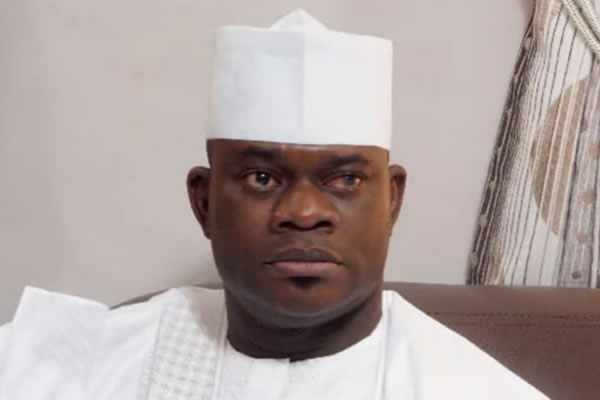Court of Appeal Reinstates EFCC’s Interim Forfeiture Order on 14 Properties Linked to Yahaya Bello
The Court of Appeal in Lagos has reinstated the interim forfeiture order initially granted to the Economic and Financial Crimes Commission (EFCC) regarding 14 properties allegedly linked to Kogi State Governor, Yahaya Bello.
Delivering the unanimous judgment virtually on Wednesday, Justice Yargata Nimpar held that the Federal High Court erred in law when it set aside the forfeiture order on the grounds of constitutional immunity. According to her, Section 308 of the 1999 Constitution — which shields serving governors from civil and criminal proceedings — does not extend to assets suspected to be proceeds of crime. Therefore, such properties can be subjected to investigation and preserved pending the determination of a forfeiture application.
Justices Danlami Senchi and Paul Bassi concurred with the ruling, directing the EFCC to continue with the final forfeiture process.
The original interim forfeiture order was granted by Justice Nicholas Oweibo of the Federal High Court in Lagos in February 2023, following an ex parte application filed by EFCC counsel Rotimi Oyedepo (SAN). The EFCC alleged the assets were linked to criminal conduct, and the court authorized the temporary seizure of 14 properties located in Lagos, Abuja, and Dubai.
Justice Oweibo also directed the EFCC to publish the order in two national newspapers and invite interested parties to contest the forfeiture.
In response, Governor Yahaya Bello filed an objection, seeking to vacate the interim order. He claimed the properties in question were acquired before he assumed office as governor, and therefore not connected to Kogi State resources. Bello’s legal team argued that his constitutional immunity under Section 308 protected him from such proceedings. They also contended that the Proceeds of Crime Act, 2022 could not be applied retroactively and that the EFCC’s actions violated an injunction from a Kogi State High Court restraining the agency from investigating the state’s finances.
Furthermore, Bello’s counsel challenged the jurisdiction of the Federal High Court in Lagos, noting that the properties were located outside the court’s territorial jurisdiction, including in Abuja, Kogi, and Dubai, while the governor resides in Lokoja.
The EFCC, in its counter-argument, insisted that no Nigerian court had barred it from performing its constitutional duties. The Commission asserted that the properties, including a luxury unit in Dubai’s Burj Khalifa, were reasonably suspected to be linked to illicit funds. It also sought the forfeiture of an additional N400 million tied to the investigation.
However, on April 26, 2023, Justice Oweibo vacated the initial forfeiture order, citing Section 308 and ruling that the court lacked jurisdiction to proceed.
Dissatisfied with the decision, the EFCC appealed. In its ruling, the Court of Appeal held that the lower court was wrong to strike out the case without addressing whether the properties should be permanently forfeited. The appellate court dismissed Bello’s objections as lacking merit, restored the interim forfeiture order, and directed the EFCC to proceed to the final forfeiture hearing.




